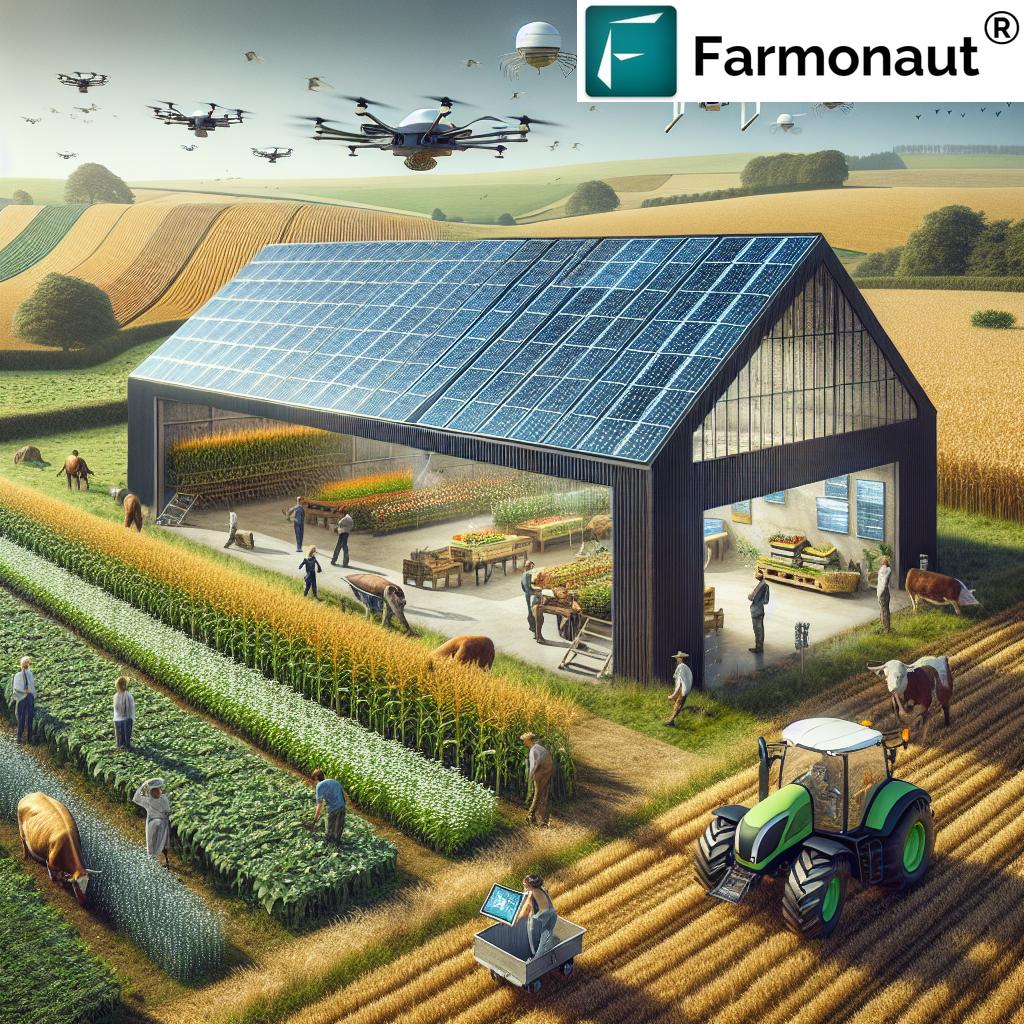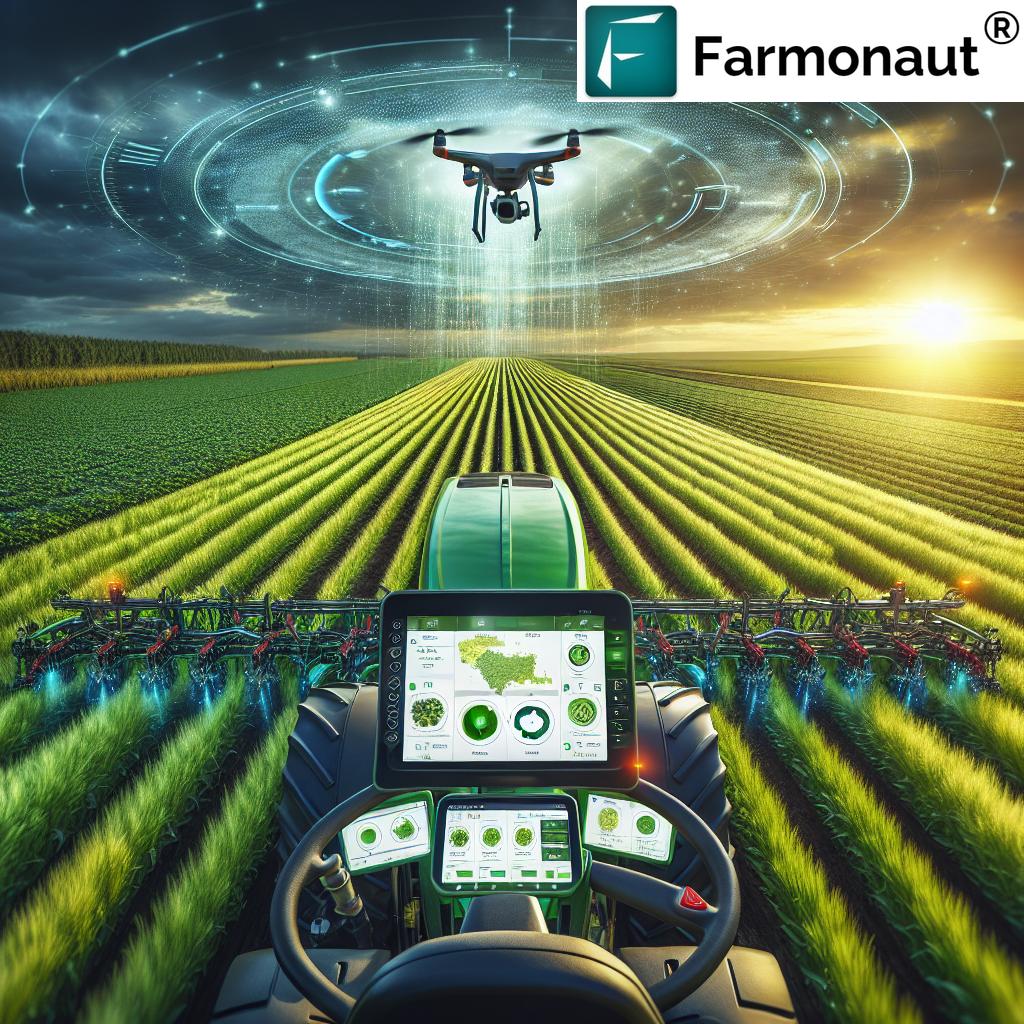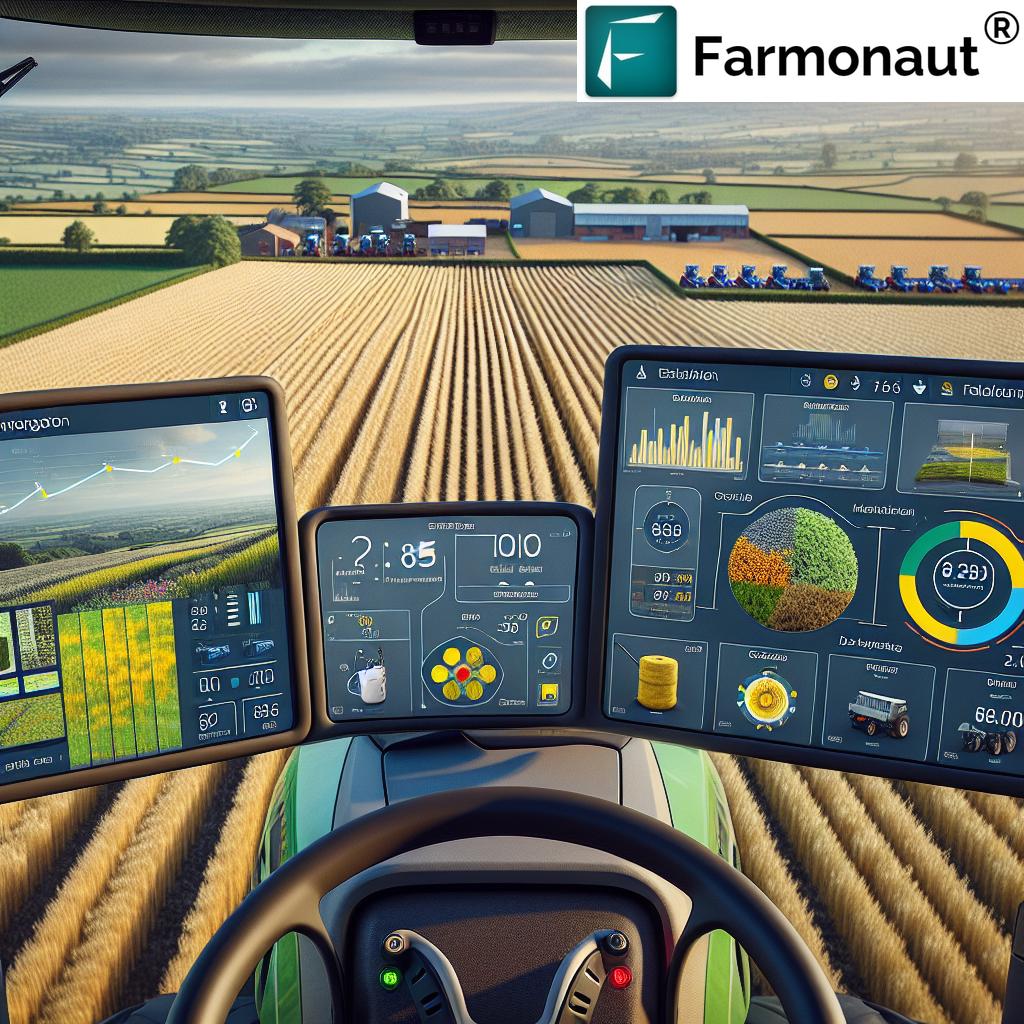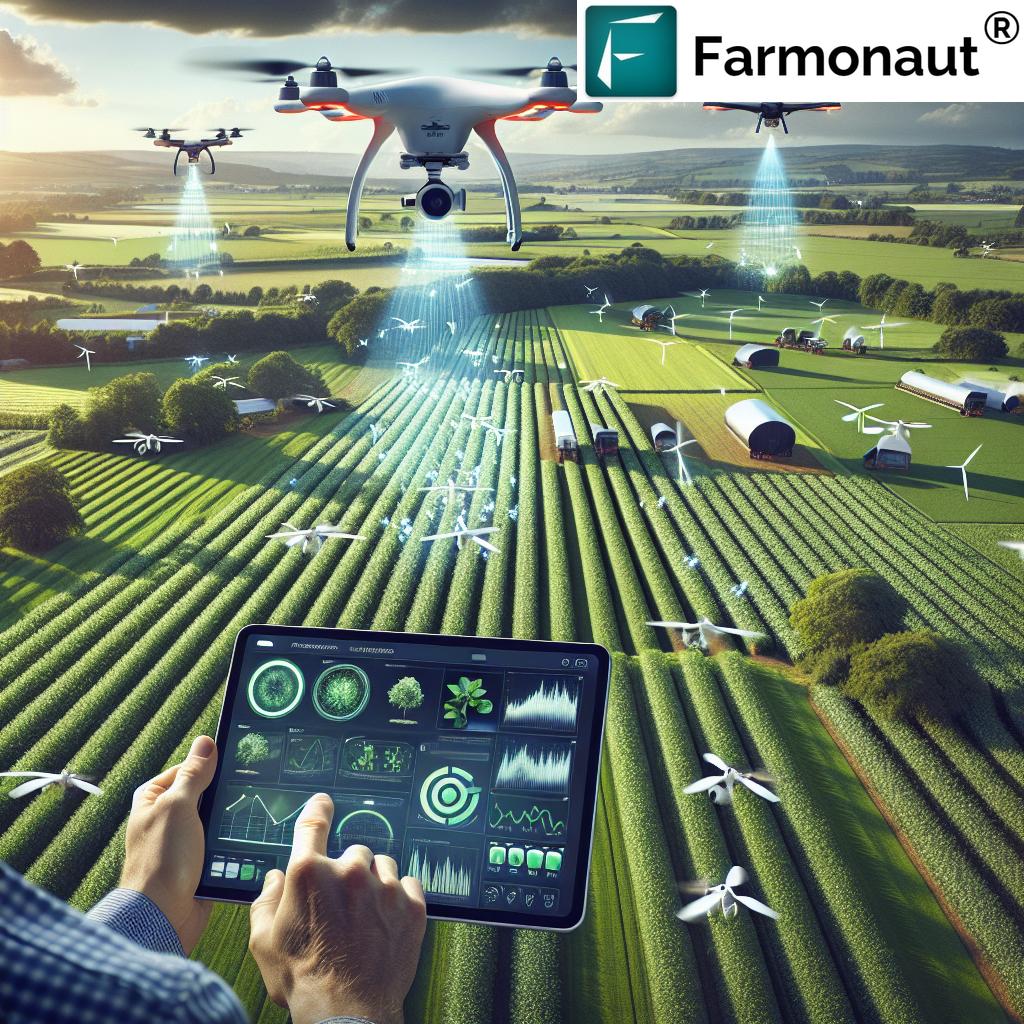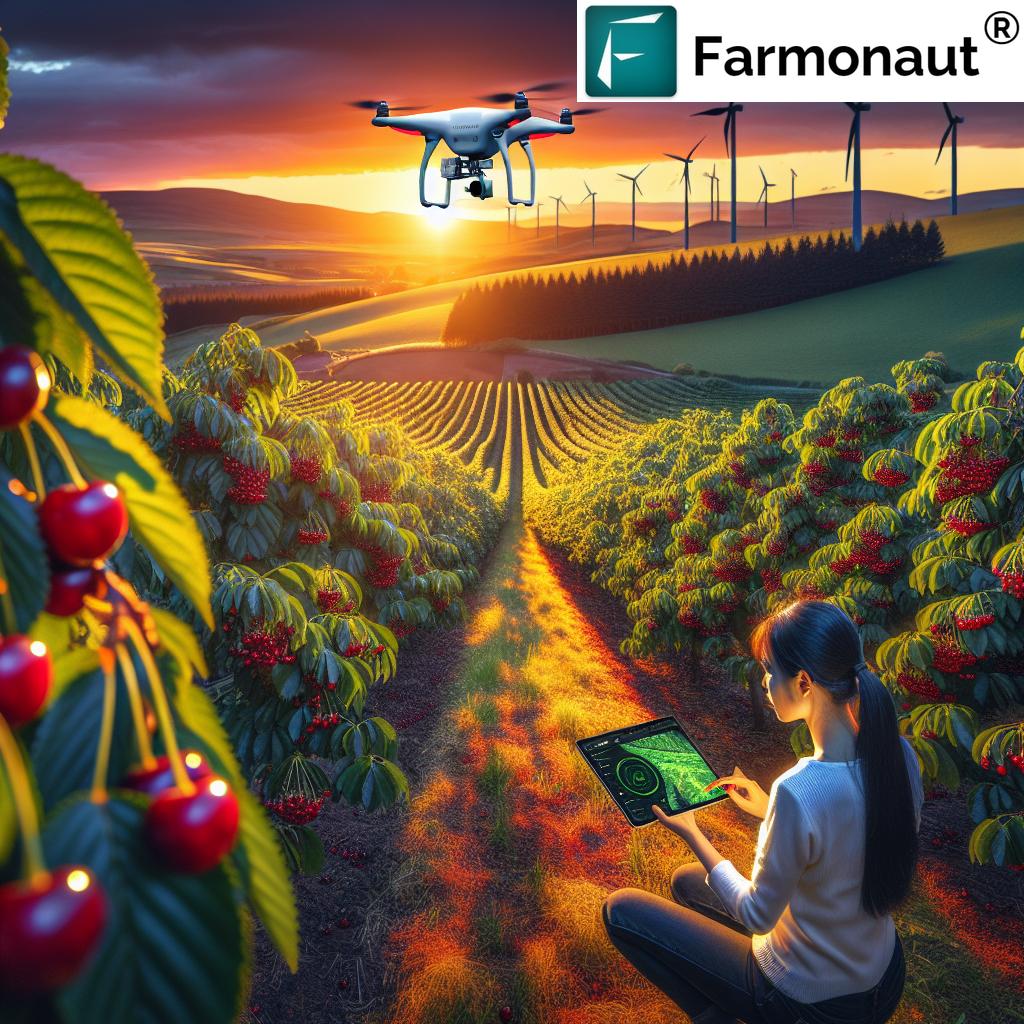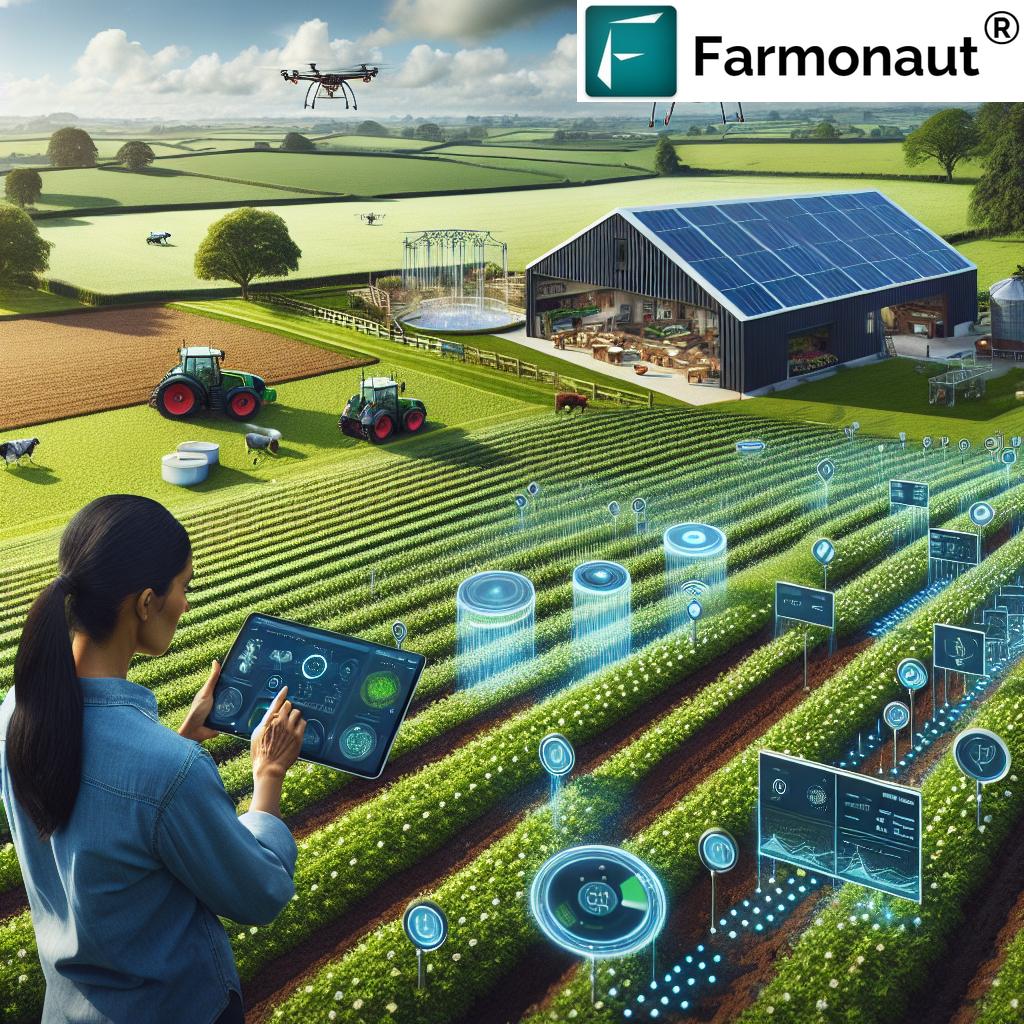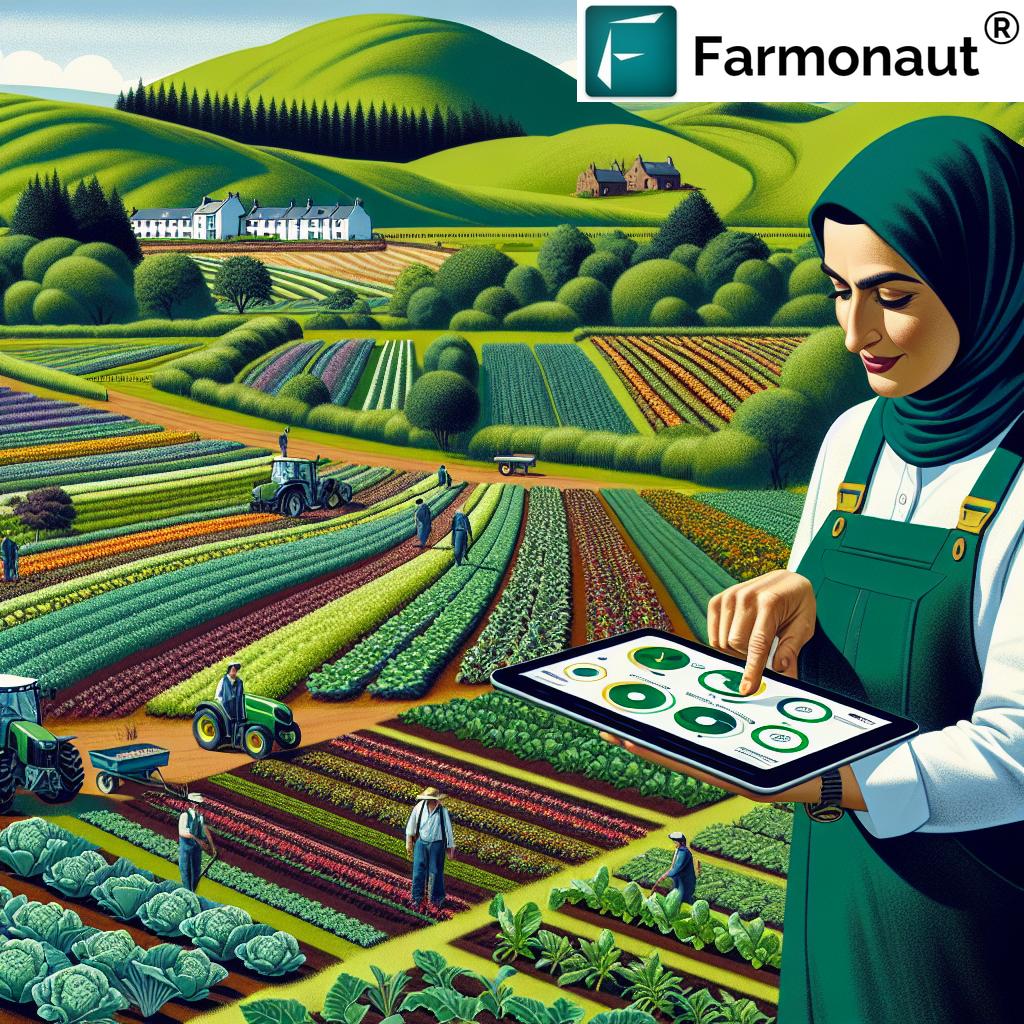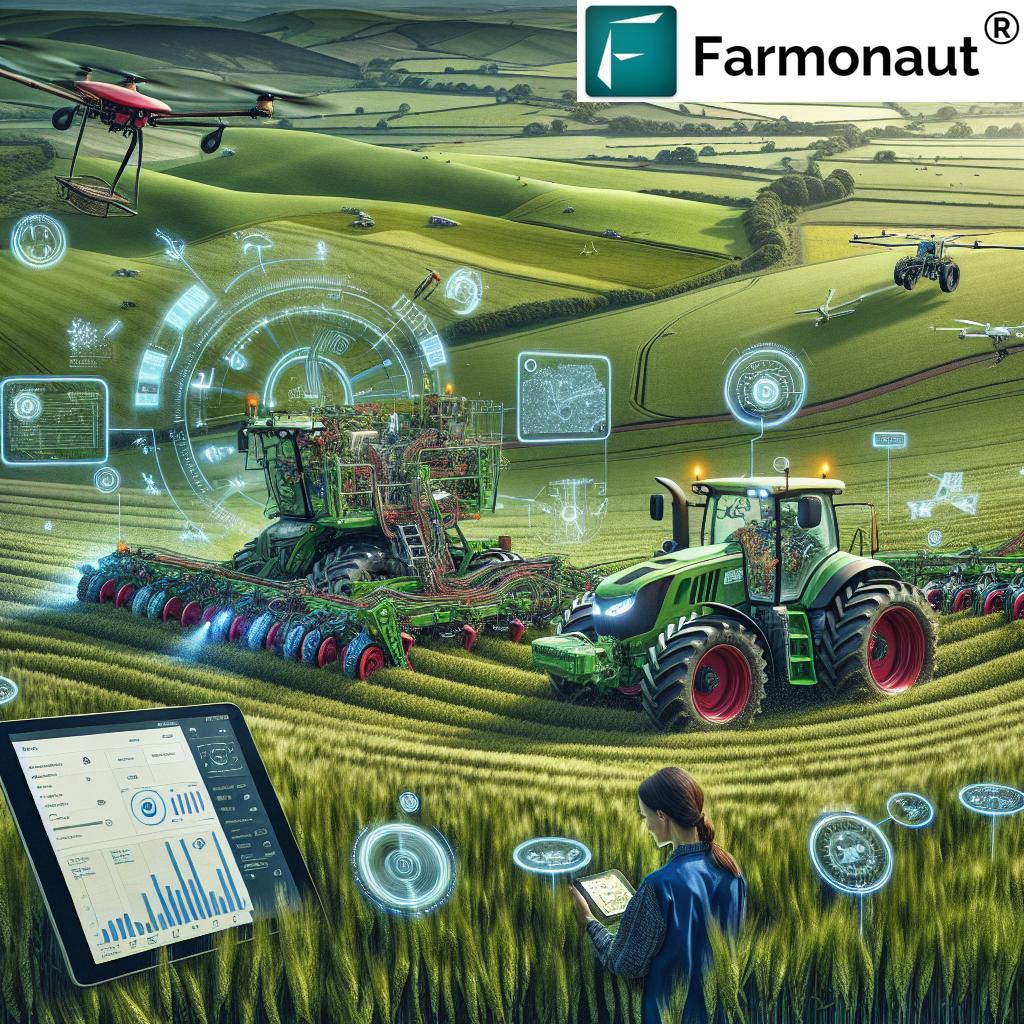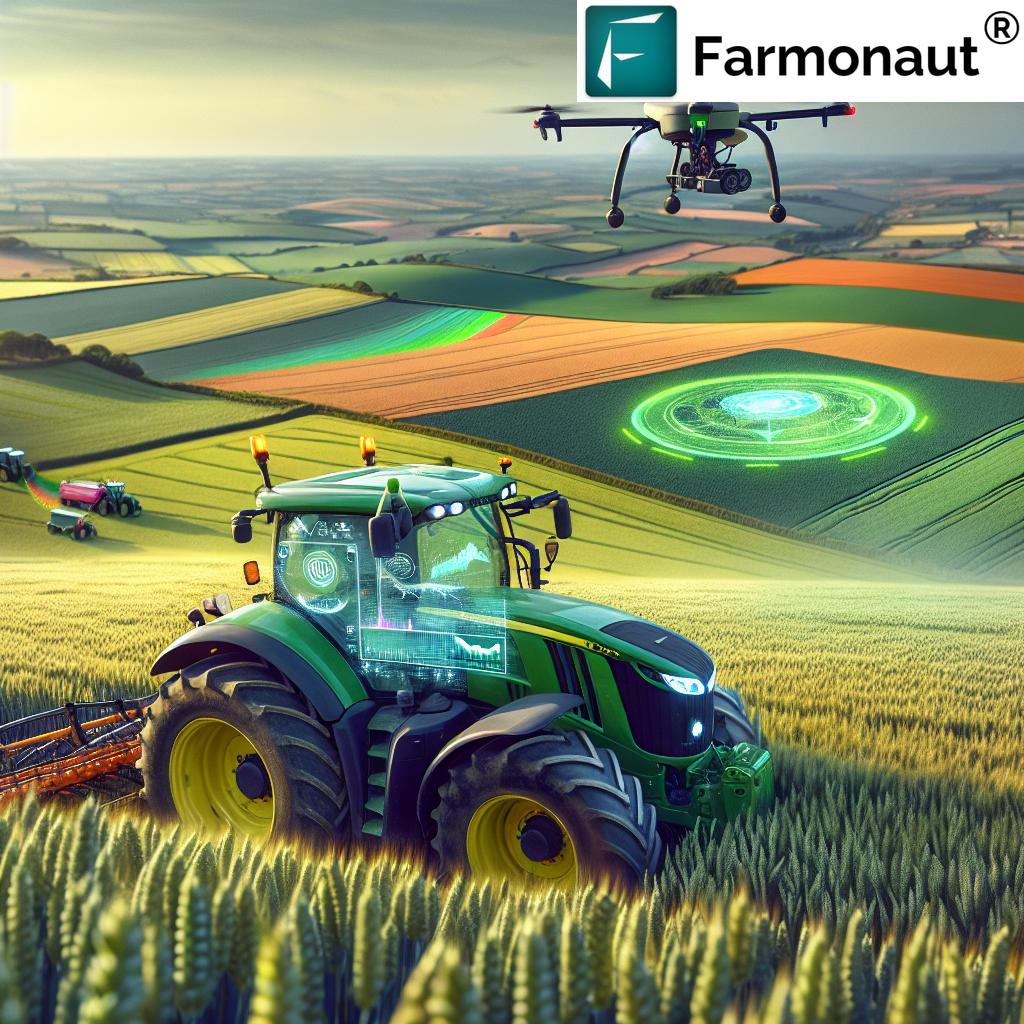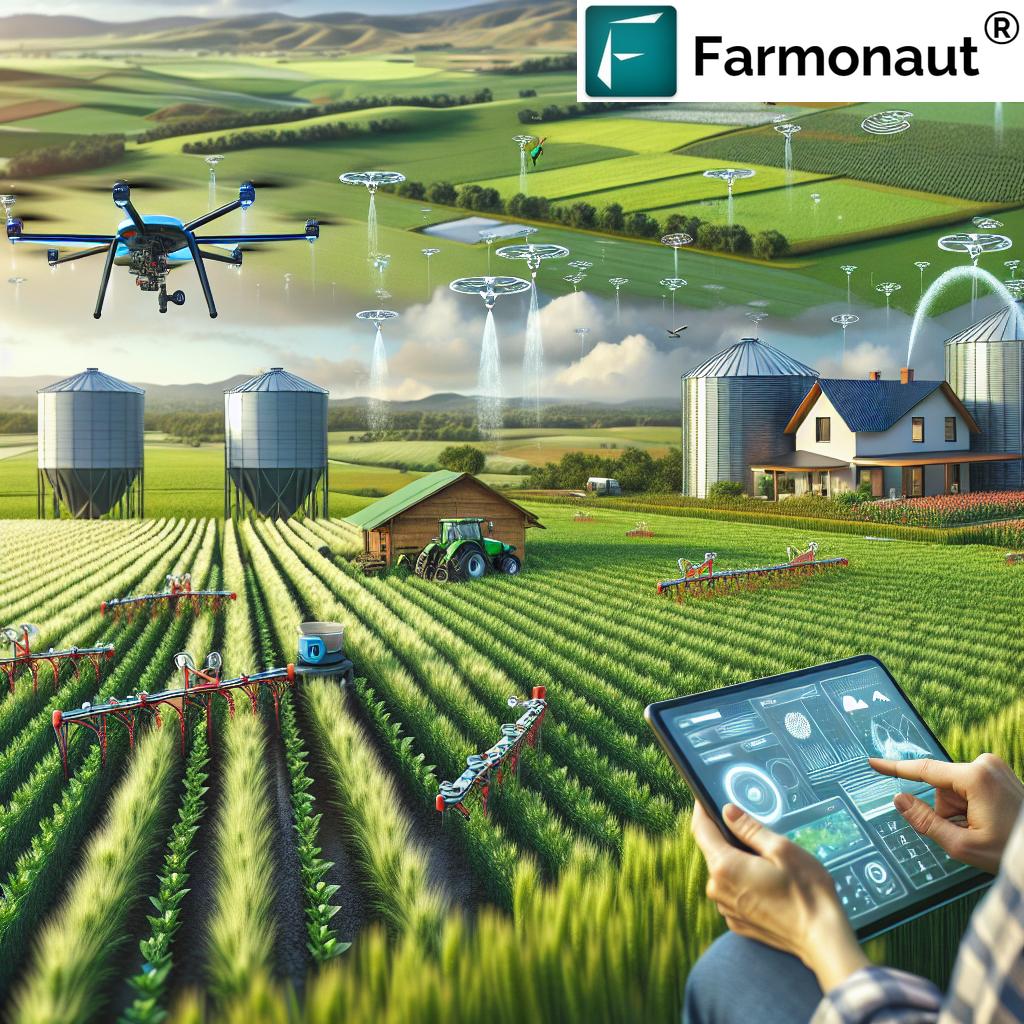Revolutionizing Lincolnshire Farming: Precision Agriculture Equipment and GPS Technology for Modern Farmers
“GPS-guided tractors can improve field efficiency by up to 30%, reducing fuel consumption and labor costs.”
Welcome to the future of farming in Lincolnshire and beyond! In this comprehensive guide, we’ll explore how precision agriculture equipment and GPS technology are transforming the agricultural landscape across Lincolnshire, Bedfordshire, Oxfordshire, and other regions in the UK. As agricultural machinery dealers and farmers, we’re excited to share the latest innovations that are revolutionizing farm operations and boosting productivity.
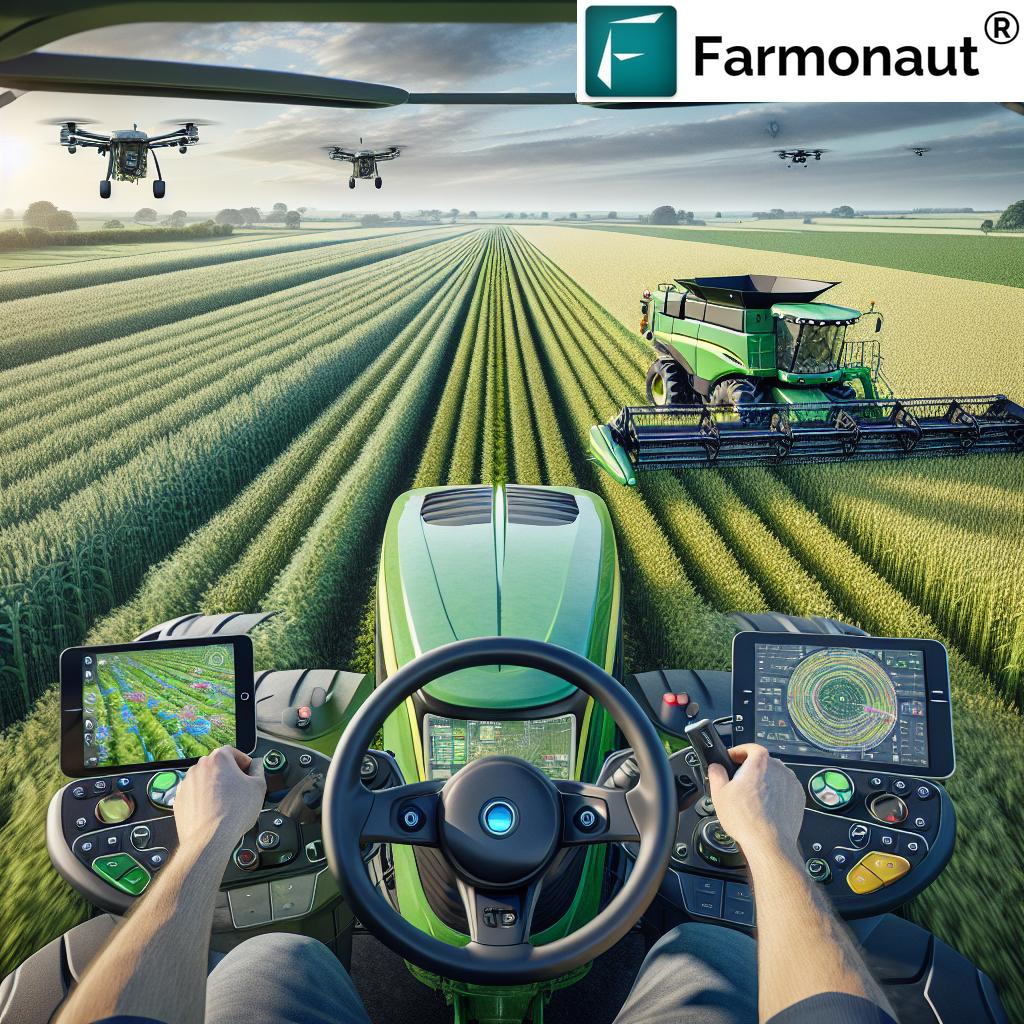
The Rise of Precision Farming in Lincolnshire
Lincolnshire, known for its vast agricultural lands, has been at the forefront of adopting modern farming technology. From Boston to the rolling hills of Shropshire, farmers are embracing precision agriculture to optimize their operations. Let’s delve into how this technology is changing the game for farmers across the region.
GPS Guidance Systems: The Heart of Precision Agriculture
At the core of precision farming lies GPS guidance technology. This revolutionary system allows farmers to navigate their fields with unprecedented accuracy, reducing overlap and improving efficiency. Here’s how GPS is transforming farming practices:
- Accurate Field Mapping: GPS technology enables farmers to create precise maps of their fields, including soil types, elevation, and crop yields.
- Auto-Steering: Tractors equipped with GPS guidance can operate with minimal human intervention, maintaining straight lines and reducing fatigue.
- Variable Rate Application: Farmers can apply seeds, fertilizers, and pesticides at variable rates across their fields, optimizing resource use.
Leading brands like John Deere, Claas, and New Holland offer tractors and implements with integrated GPS systems, making precision farming accessible to farmers of all scales.
Advanced Irrigation Systems: Maximizing Water Efficiency
Water management is crucial in modern agriculture, especially in areas prone to drought. Advanced irrigation systems, coupled with GPS technology, are helping farmers in Lincolnshire and surrounding areas to:
- Monitor soil moisture levels in real-time
- Apply water precisely where and when it’s needed
- Reduce water waste and energy costs
- Improve crop yields through optimal irrigation scheduling
These systems are particularly beneficial for farms dealing with diverse crops, from traditional grains to specialized crops like potatoes and beets.
Cutting-Edge Crop Cultivation Tools
Modern farmers have access to an array of sophisticated tools designed to enhance crop cultivation. Let’s explore some of the most innovative equipment revolutionizing farming in Lincolnshire and beyond:
Precision Seeders and Drills
Precision seeders and drills have transformed the planting process. These machines offer:
- Precise seed placement for optimal germination
- Variable rate seeding capabilities
- Integration with GPS for accurate row spacing
Brands like Claas and New Holland offer state-of-the-art seeders that can handle various crop types, from small grains to larger seeds.
Smart Sprayers and Spreaders
Intelligent spraying and spreading equipment is helping farmers in Lincolnshire and neighboring counties to apply chemicals and fertilizers more efficiently. These systems feature:
- Precision nozzle control for targeted application
- Real-time weather monitoring to adjust application rates
- Integration with farm management software for data-driven decision-making
John Deere and Challenger are among the leading brands offering smart sprayers and spreaders that significantly reduce chemical usage while improving crop health.
Livestock Handling Equipment: Efficiency Meets Animal Welfare
Livestock farmers in Lincolnshire and surrounding areas are benefiting from advanced handling equipment that improves both efficiency and animal welfare. Modern livestock handling systems include:
- Automated sorting gates
- Electronic identification systems
- Precision feeding equipment
- Advanced milking systems for dairy farms
These technologies not only streamline operations but also provide valuable data on animal health and performance, allowing farmers to make informed decisions about their herds.
Farm Storage Solutions: Protecting Your Harvest
Proper storage is crucial for maintaining crop quality and maximizing profits. Modern farm storage solutions in Lincolnshire and beyond include:
- Climate-controlled grain silos
- Advanced ventilation systems for root crop storage
- Automated monitoring and control systems
- Efficient material handling equipment for loading and unloading
These storage solutions help farmers preserve their harvests, reduce post-harvest losses, and ensure higher quality produce reaches the market.
Agricultural Land Management: A Data-Driven Approach
Effective land management is crucial for sustainable farming. Modern farmers in Lincolnshire and neighboring regions are leveraging technology to optimize their land use:
- Satellite Imaging: Provides valuable insights into crop health and field conditions
- Soil Sampling and Analysis: Helps in creating precise nutrient management plans
- Drones for Field Scouting: Offers a bird’s-eye view of crop conditions and identifies problem areas quickly
These technologies enable farmers to make data-driven decisions about crop rotation, fertilizer application, and pest management, leading to improved yields and reduced environmental impact.
“Precision agriculture techniques can increase crop yields by 10-15% while reducing water usage by up to 25%.”
Embracing Modern Farming Technology: A Case for Innovation
As we continue to explore the world of precision agriculture, it’s clear that the benefits extend far beyond increased efficiency. Let’s delve deeper into how these technologies are reshaping farming practices in Lincolnshire, Bedfordshire, and beyond.
The Power of Data in Agriculture
Modern farming equipment doesn’t just work the land; it collects valuable data with every pass. This data revolution is transforming how farmers make decisions:
- Yield Mapping: Combine harvesters equipped with yield monitors create detailed maps of productivity across fields.
- Soil Health Monitoring: Sensors can provide real-time data on soil moisture, temperature, and nutrient levels.
- Weather Integration: Farm management systems incorporate local weather data to optimize planting, spraying, and harvesting schedules.
By leveraging this data, farmers can make informed decisions that lead to better resource allocation, reduced waste, and increased profitability.
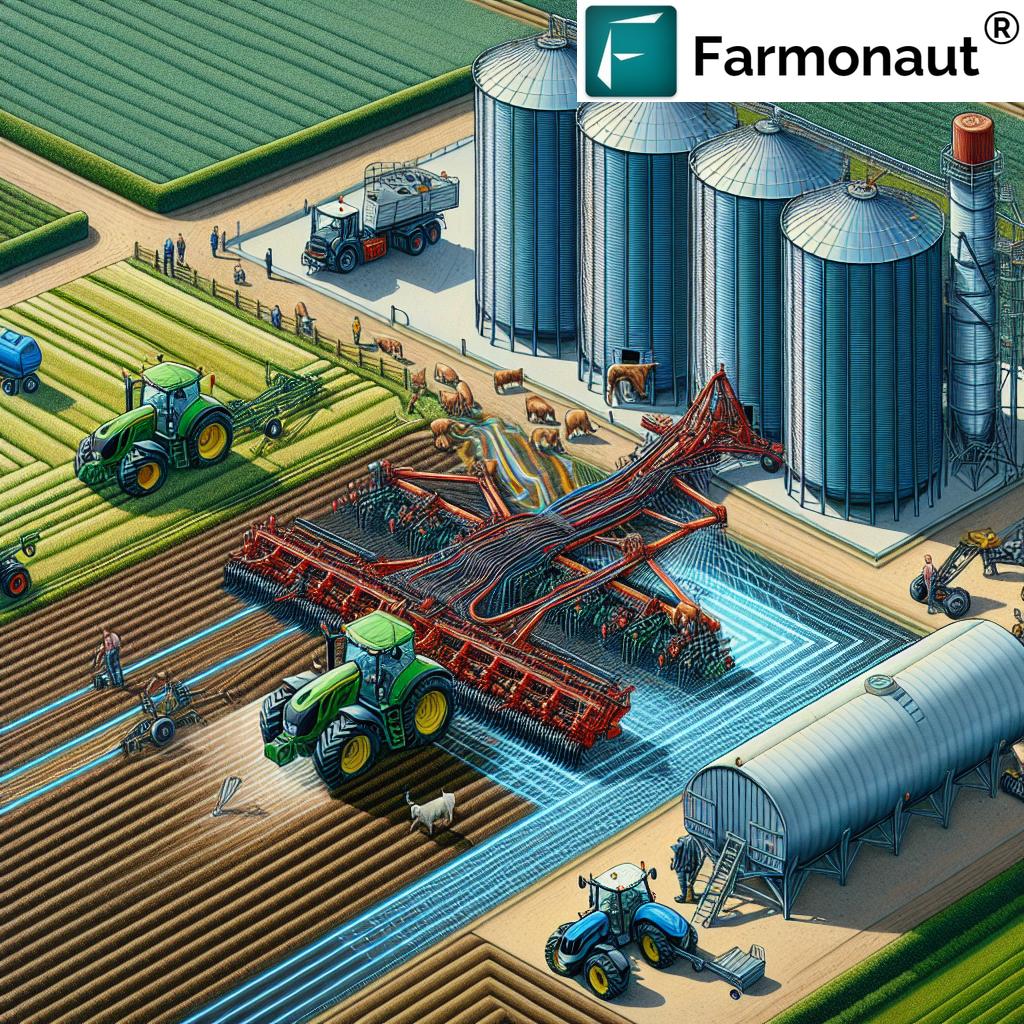
Precision Farming Techniques for Specialty Crops
While much of the focus on precision agriculture has been on large-scale grain production, specialty crop farmers in Lincolnshire and surrounding areas are also benefiting from these technologies:
- Vineyard Management: GPS-guided pruning and harvesting equipment is improving efficiency in vineyards.
- Fruit Orchards: Precision sprayers reduce pesticide use while ensuring optimal coverage.
- Vegetable Production: Automated transplanting and harvesting machines are increasing productivity in labor-intensive crops.
These advancements are helping farmers in diverse agricultural sectors to improve their operations and meet the growing demand for high-quality, sustainably produced food.
The Role of Agricultural Machinery Dealers in the Precision Farming Revolution
Agricultural machinery dealers play a crucial role in bringing precision farming technologies to farmers across Lincolnshire, Bedfordshire, and beyond. Here’s how dealers are supporting the adoption of modern farming practices:
- Expert Guidance: Dealers provide valuable advice on selecting the right equipment for specific farm needs.
- Training and Support: They offer training programs to help farmers get the most out of their precision agriculture equipment.
- Maintenance and Upgrades: Dealers ensure that farming equipment remains in top condition and up-to-date with the latest technologies.
- Financing Options: Many dealers offer flexible financing solutions to make advanced equipment more accessible to farmers of all sizes.
By partnering with reputable dealers, farmers can confidently invest in precision agriculture equipment that will drive their operations forward.
Precision Agriculture Equipment Comparison
| Equipment Type | Brand Names | Key Features | Estimated Cost Range | Potential Yield Increase (%) | Estimated Fuel Savings (%) | Compatibility with Farm Management Software | Suitable Farm Sizes (acres) |
|---|---|---|---|---|---|---|---|
| GPS-guided Tractors | John Deere, Claas, New Holland | Auto-steering, Variable rate application | £100,000 – £300,000 | 5-10% | 10-15% | High | 100+ |
| Advanced Irrigation Systems | Valley, Lindsay, Reinke | Remote monitoring, Variable rate irrigation | £50,000 – £150,000 | 15-25% | 20-30% (water) | Medium | 50+ |
| Precision Seeders | Kinze, Väderstad, Horsch | Variable rate seeding, Section control | £40,000 – £120,000 | 8-12% | 5-10% | High | 200+ |
| Smart Sprayers | John Deere, Challenger, Amazone | Precision nozzle control, Automated rate adjustment | £30,000 – £100,000 | 3-7% | 10-20% (chemical) | High | 100+ |
| Yield Monitors | Ag Leader, Trimble, Topcon | Real-time yield mapping, Moisture sensing | £5,000 – £20,000 | Indirect benefit | Indirect benefit | High | 50+ |
The Future of Farming: Emerging Technologies
As we look to the future, several emerging technologies are poised to further revolutionize farming in Lincolnshire and beyond:
- Artificial Intelligence (AI) and Machine Learning: These technologies are being integrated into farm management systems to provide even more precise recommendations for crop management.
- Internet of Things (IoT) Sensors: Networks of connected sensors are providing real-time data on everything from soil conditions to equipment performance.
- Autonomous Vehicles: Self-driving tractors and drones are becoming increasingly sophisticated, reducing labor requirements and improving efficiency.
- Vertical Farming: While not directly related to field agriculture, vertical farming technologies are opening up new possibilities for urban and peri-urban food production.
These advancements promise to make farming more efficient, sustainable, and productive than ever before.
Sustainable Agriculture: The Role of Precision Farming
Precision agriculture isn’t just about increasing yields; it’s also a key component of sustainable farming practices. Here’s how modern farming technology is contributing to environmental stewardship:
- Reduced Chemical Use: Precision application of pesticides and fertilizers minimizes environmental impact.
- Water Conservation: Advanced irrigation systems significantly reduce water waste.
- Soil Health: Data-driven crop rotation and tillage practices help maintain and improve soil quality.
- Carbon Footprint Reduction: Increased efficiency in operations leads to lower fuel consumption and reduced emissions.
By adopting these technologies, farmers in Lincolnshire and surrounding areas are not only improving their bottom line but also ensuring the long-term health of their land and the environment.
Overcoming Challenges in Adopting Precision Agriculture
While the benefits of precision agriculture are clear, farmers may face challenges in adopting these technologies. Here are some common hurdles and strategies to overcome them:
- Initial Investment: The cost of precision farming equipment can be significant. Farmers can explore leasing options, government grants, and phased implementation to manage costs.
- Technical Knowledge: Operating advanced equipment requires new skills. Agricultural machinery dealers and local agricultural colleges often offer training programs to help farmers get up to speed.
- Data Management: The volume of data generated by precision farming systems can be overwhelming. Farm management software and consulting services can help farmers make sense of their data and turn it into actionable insights.
- Connectivity Issues: Some rural areas may have limited internet connectivity, which is crucial for many precision farming technologies. Satellite internet and upcoming 5G networks are helping to bridge this gap.
By addressing these challenges head-on, farmers can successfully transition to precision agriculture and reap its many benefits.
Integrating Precision Agriculture with Traditional Farming Practices
It’s important to note that precision agriculture doesn’t mean abandoning traditional farming knowledge. Instead, it’s about enhancing time-tested practices with modern technology. Here’s how farmers are blending old and new:
- Crop Rotation: Using data from yield maps to optimize traditional crop rotation practices.
- Pest Management: Combining traditional scouting with drone imagery for more effective pest control.
- Soil Management: Enhancing traditional soil conservation techniques with precision tillage and variable-rate fertilization.
- Livestock Husbandry: Using electronic identification and monitoring systems to complement traditional animal care practices.
This integrated approach allows farmers to preserve valuable traditional knowledge while leveraging the power of modern technology.
The Role of Farmonaut in Precision Agriculture
As we explore the world of precision agriculture, it’s worth highlighting the contributions of innovative companies like Farmonaut. Farmonaut offers advanced, satellite-based farm management solutions that complement the precision farming equipment we’ve discussed. Their platform provides:
- Real-time crop health monitoring using satellite imagery
- AI-based advisory systems for crop management
- Weather forecasting and analysis
- Resource management tools
These tools can be invaluable for farmers looking to maximize the benefits of their precision agriculture equipment. To learn more about Farmonaut’s offerings, visit their web application or explore their API for developers.
Conclusion: Embracing the Future of Farming
As we’ve explored throughout this guide, precision agriculture equipment and GPS technology are revolutionizing farming in Lincolnshire, Bedfordshire, and beyond. From GPS-guided tractors to advanced irrigation systems, these technologies are helping farmers increase yields, reduce costs, and promote sustainable practices.
The future of farming is here, and it’s more precise, efficient, and sustainable than ever before. By embracing these technologies and working closely with agricultural machinery dealers, farmers can position themselves for success in an increasingly competitive and environmentally conscious market.
Whether you’re managing vast fields of grain, tending to specialty crops, or raising livestock, there’s a place for precision agriculture on your farm. As you consider implementing these technologies, remember that the journey to precision farming is a process. Start small, learn continuously, and gradually expand your use of these powerful tools.
The agricultural landscape is evolving, and with it, the role of the modern farmer. By combining traditional farming wisdom with cutting-edge technology, we can create a future where agriculture is not only more productive but also more in harmony with the environment.
Are you ready to take your farming operation to the next level? Explore the precision agriculture equipment options available from your local dealers, and consider how technologies like those offered by Farmonaut can complement your farming practices. The future of farming is in your hands – embrace it, and watch your farm thrive.
FAQs
- What is precision agriculture?
Precision agriculture is a farming management concept that uses technology to observe, measure, and respond to variability in crops. It aims to optimize returns on inputs while preserving resources. - How does GPS technology improve farming?
GPS technology in farming allows for precise navigation of equipment, enables variable rate application of inputs, and facilitates accurate mapping of field conditions and yields. - What are the main benefits of precision agriculture?
The main benefits include increased crop yields, reduced input costs, improved efficiency, better environmental stewardship, and more informed decision-making based on accurate data. - Is precision agriculture only for large farms?
While large farms may see more immediate benefits due to economies of scale, precision agriculture technologies are increasingly accessible and beneficial for farms of all sizes. - How can I get started with precision agriculture on my farm?
Start by consulting with local agricultural machinery dealers or precision agriculture specialists. They can assess your farm’s needs and recommend appropriate technologies to begin with, such as GPS guidance systems or yield monitors.
For more information on precision agriculture and satellite-based farm management solutions, check out Farmonaut’s offerings:
For developers interested in integrating Farmonaut’s technologies into their own applications, check out the API Developer Docs.






